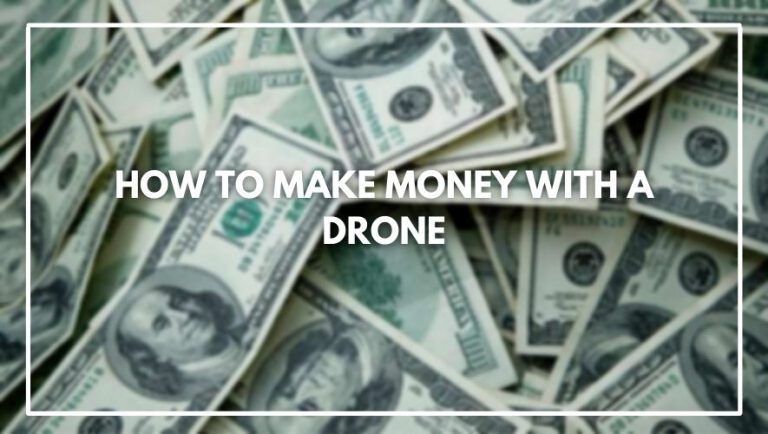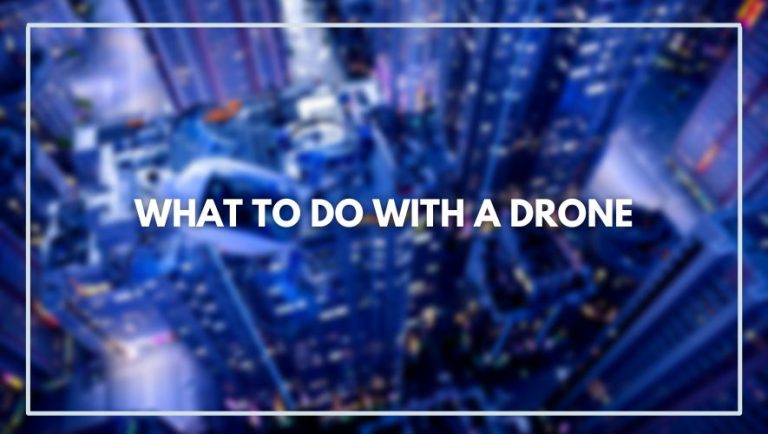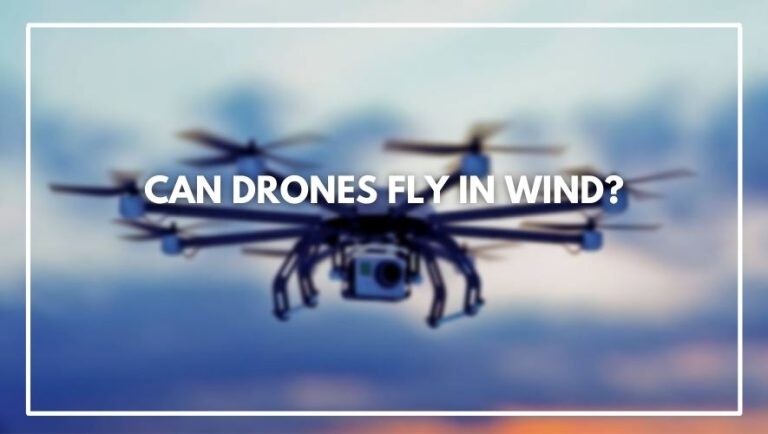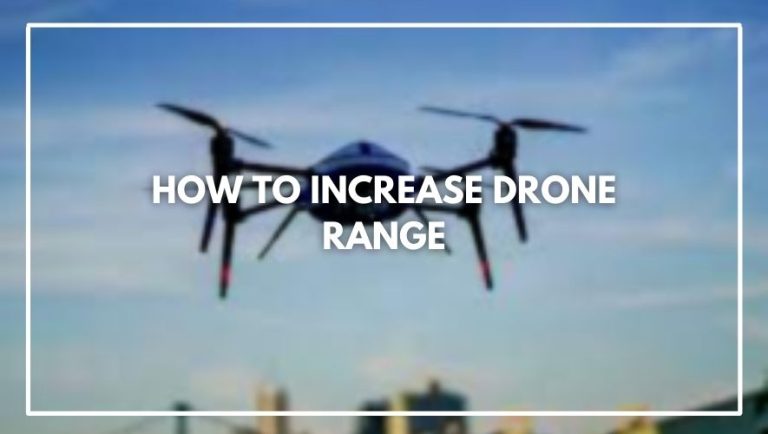The world of drone pilots is in a state of flux. It’s a growing field, but it’s also highly competitive. In order to be successful, you need to know how much money do drone pilots make?
Drone pilots make a decent amount of money, though it depends on the company they work for. Drone pilots typically earn between $40 and $50 per hour, depending on their experience level. Companies that hire drone pilots often offer benefits such as health insurance, paid time off, and retirement accounts.
The answer depends on who you are and what level of expertise you have. If you’re just starting out as a freelance drone pilot or have an entry-level position at an established company that doesn’t pay very well at first, then there are things you can do to improve your earnings potential over time.
Money Drone Pilots Make
The average salary for a drone pilot ranges from $20,000 to $50,000 per year. This type of income depends on several factors:
- The size of the drone pilot’s company
- The location of their business (e.g., the cost of living in New York City compared to Tulsa, Oklahoma)
- The number of hours spent working each week
Can You Make A Living As A Drone Pilot In 2022?
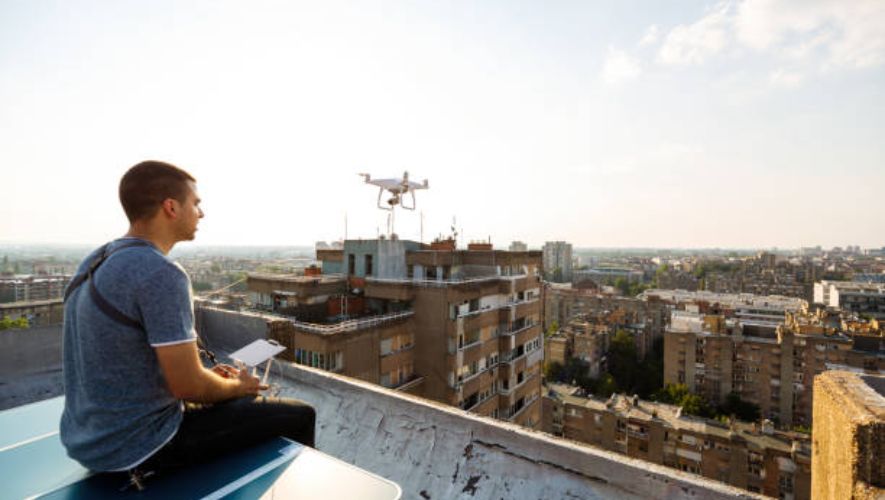
As with any industry, it’s important to consider the pros and cons before making a decision. In this case, being a drone pilot offers several benefits. First, there are many opportunities to work as an independent contractor or employee for both companies and individuals. Second, you can choose jobs based on your level of experience as well as the type of work you want to do (e.g., delivery drones). Finally, the pay is good—but it depends on the type of work you do and how much time you spend doing it! In addition to these benefits there are also some downsides to being a drone pilot:
- You must have excellent eyesight and reflexes;
- You need experience flying planes;
- It’s not easy finding work as a new pilot;
Do Drone Pilots Make Good Money Flying Drones?
It depends. If you’re flying large commercial drones, you could make a lot of money. But the market conditions have to be right and you have to have experience in the field.
If you’re working for a company like Amazon or Google, which are both testing out drone delivery services and need pilots who can fly drone routes around their facilities (or even outside of them), then yes—you could be making some serious cash by flying for those companies.
But if what you’re doing is just taking pictures from above or doing surveillance work for someone’s security company, then no—you probably won’t make much money from it at all because there are so many people offering this kind of service now that they’ll be competing against each other and driving down prices in order to stay competitive
What’s The Average Hourly Pay For Drone Pilots?
The average hourly pay for a drone pilot is $17.25, but that doesn’t mean you should expect to make the same amount of money. The average hourly rate for a freelance drone pilot is $35-$45 per hour, but there are many factors that can affect your earnings.
Here’s what we know about how much money do drone pilots make and how to earn more as a freelancer:
- Location
- Experience level
How Much Do Freelance Drone Pilots Make?

If you want to make money as a drone pilot, it’s important to have a good understanding of the market. The scope of work, deliverables and time involved in each project will vary greatly; make sure you understand what is required so that you can make an informed decision about whether or not to participate in any given project. When considering projects and jobs, it may help to ask yourself questions such as:
- What is the risk level?
- How much money am I willing / able to make?
The answers will determine whether or not it’s worth taking on freelance projects.
Freelancing As A Drone Pilot Or Working In-house, Which One Pays Better?
When you’re working as a freelancer, you have the flexibility to work hours that fit around your personal schedule.
This is great for those who want to be able to spend time with their family or make it home for dinner. You also don’t have to worry about going through an interview process again if you want a new gig—you can just apply online and get started immediately.
However, working as an independent contractor comes with downsides too: there aren’t any benefits like sick leave or paid vacation days, and the income fluctuates from month-to-month depending on how much work is available (and how many hours per week are required).
As one drone pilot put it: “You could make $10/hour some weeks, but then $5/hour others.”
How Much Should You Charge For Your Drone Services?

The answer is: it depends. The industry you work in and the complexity of the job will determine how much to charge. You’ll also want to consider how long it takes to complete a given task, and how much experience you have doing similar things. In general though, here are some guidelines:
- For a small job that requires minimal time (e.g., shooting aerial footage of an apartment building), expect to make between $50-$200/hr depending on who’s paying you (client or employer).
- For larger projects requiring more expertise (e.g., mapping large swaths of land), expect to make between $100-$500/hr depending on who’s paying you (client or employer).
The next step is to determine your hourly rate. Your hourly rate should be based on the value you offer, your competition, and costs associated with drone services.
- Determine what you can charge by calculating your value proposition.
- Consider costs associated with your drone service.
- Compare this with market rates for similar services in your area and industry.
- Don’t forget about overhead costs like insurance and equipment replacement!
Travel Expense
Travel Expense is a cost of doing business, whether you are a freelancer or you work in-house. If you are self-employed and work from home, then the travel expenses will be your own.
However, if you work for an employer that pays for your travel costs and provides other benefits such as medical insurance or retirement plans, then they will cover these expenses on their payrolls (and this can be very good news).
Insurance Coverage
Insurance Coverage is another expense you’ll need to consider. If you’re piloting in an area where drones are prohibited, or if the weather is bad, it’s possible that you could get into an accident—and if that happens while you’re working, your insurance will provide help.
It can also cover damage to property or people and theft of your drone(s). Insurance can be expensive, but it’s worth every penny when you consider how much time and money have gone into purchasing them.
Deliverables And Quality
You should also think about how much time you spend on your work. When you’re done, how long will it take to deliver? How much quality do you need to deliver? How long will it take to get there?
Deliverables are the end result of your work, quality is the level of excellence in those deliverables and time spent is how long it takes for you to do that work.
If all three of these factors (deliverables, quality and time spent) are high then you could make quite a bit of money doing drone photography or videography!
Time Spent
Time is money. That’s the saying, and it’s true. Time Spent on a project is a cost that should be included in your pricing.
The next time you’re asked to bid on a job, make sure to include time as part of the equation—this includes the time it takes to travel to the job site, set up your equipment and get ready for flight (be sure to charge for travel time), and then pack up afterwards.
Industry
The drone industry is growing rapidly. According to a recent report from Research and Markets, the global unmanned aerial vehicle (UAV) market will increase by over $30 billion by 2022, creating over 1 million jobs in that same time period.
That means there are plenty of opportunities for pilots who want to make money with drones.
Conclusion
It depends on how experienced you are, what type of drone you fly, and where you’re working. Some people make a living flying drones, while others just do it for fun. If you’re looking to get into this line of work, check out the courses and workshops that are available.
If you are looking to get into the drone piloting industry, then we hope this article has been helpful in helping you understand what to expect.
As we’ve discussed, there are many different ways to make money as a drone pilot and even more opportunities out there than just flying drones. The more skillsets you have as a drone pilot, the better off you will be when searching for work!
Frequently Asked Questions (how Much Money Do Drone Pilots Make)
What Is The Highest Paying Job With A Drone?
The highest paying job with a drone is as an aviation pilot. As long as you have the right credentials and training, this can be a great way to earn extra income or even start your career.
Some of the top-paying jobs are:
- Drone Pilot
- Aerial Photographer/Videographer
- Drone Technician (Customer Service)
- Drone Salesperson or Rep
How Much Does A Drone Pilot Make A Year?
Drones can be used for a variety of purposes, including photography, videography, construction and more. A drone pilot typically works in an office environment and typically earns an average salary of $48K per year. However, if you work as a professional drone pilot in specialized fields such as aerial surveying or inspection services, your annual salary will likely be higher than this range.
The best way to learn about how much money do drone pilots make depends on what kind of job you’re looking for. For example:
Is It Worth Being A Drone Pilot?
Drone piloting is a great job for people who want to work from home, travel and make their own schedule. It’s also in high demand and has no formal education requirements. If that sounds like you, there are many reasons why being a drone pilot could be the perfect job for you.
- You can work from home
- You can work as much or as little as you want
- There are no formal education requirements
- The pay is good
What Are The Best Ways To Find Drone Pilot Jobs?
There are many ways to find drone pilot jobs. The best and most effective way is through networking and building relationships with people in the industry.
You can do this by joining communities like dronepilotsguild.com, attending meetups in your area (and even joining local chapters if there’s one nearby), reaching out directly to companies that might be looking for someone like you, or using job boards like Upwork or Indeed.
Some pilots also find work through social media platforms such as Instagram (using hashtags related to drones) or Twitter accounts dedicated specifically to helping pilots connect with each other, companies and potential clients (like @dronelance).
How Do I Know What Kind Of Drone Pilot Job Is Right For Me?
Before you can figure out how much money you want to make, it’s important to think about what kind of drone pilot job is right for you.
You may be interested in a career as a professional photographer or cinematographer who flies drones and shoots aerial footage for movies and commercials, or maybe you have a passion for flying drones as part of your post-college hobby.
Maybe you’re someone who likes the idea of making extra money by delivering packages with their drone during the weekends.
Whatever your interests are and whatever type of work environment you prefer, there is bound to be something that fits your interests and abilities if it involves flying drones!
Do I Need To Get Licensed Or Certified As A Drone Pilot?
You must be licensed to fly a drone, and the process is quite involved. The Federal Aviation Administration (FAA) requires that you fill out an application and pass both written and practical tests in order to receive your Remote Pilot Certificate. To get this license, you need to have at least 200 hours of flight time as a pilot.
If you want to fly commercially, then the FAA has additional requirements that they will make sure that you meet before issuing your license:
- You must be at least 17 years old
- You must have passed an aeronautical knowledge exam
- You must have obtained an FAA Medical Certificate
- You must have completed a security background check
- You must pass TSA’s Transportation Security training course (if required)

